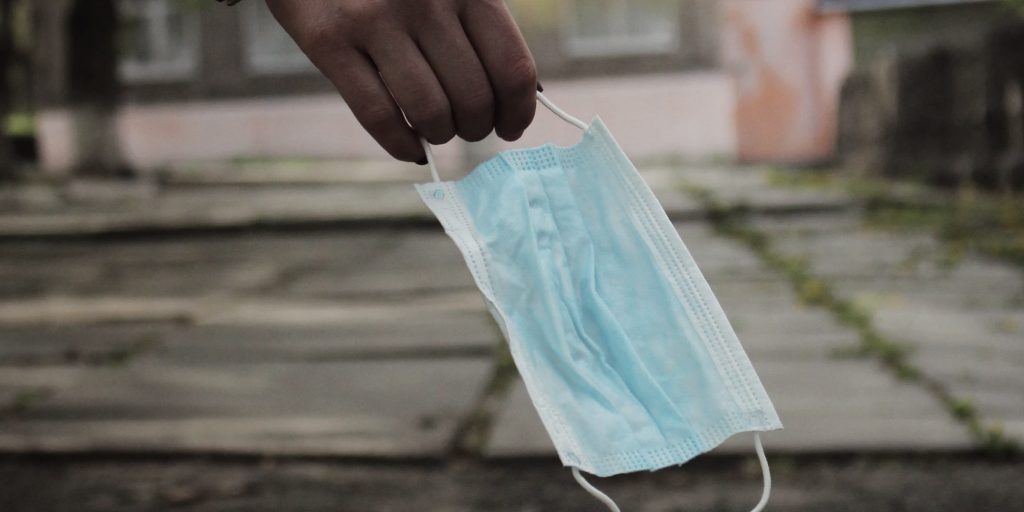What lessons can we learn from the disrupted supply of medical equipment and supplies?
Virtually everyone in North America knows that state and local governments and healthcare institutions are experiencing difficulty and frustration as they seek to acquire tests, respirators, gowns, gloves, ventilators, and other sorely needed medical equipment and supplies in the midst of the COVID-19 pandemic. However, few, if any, members of the general public are aware that the people who will be around for the next pandemic will benefit from the notes that professional procurement officers are taking about the issues they are encountering and pondering how the effects of such issues can be eliminated or at least mitigated the next time a similar situation arises.
To capture the notes that public procurement professionals are taking and the solutions they are pondering, the author of this column asked two small samples of public procurement thought leaders one simple question. The question was: Knowing what you know now, what lessons can public procurement professionals learn from the supply chain failures related to masks, ventilators, and other items needed to address the effects of the Covid-19 pandemic? The two samples of thought leaders were surveyed nine days apart in the second half of March 2020. Nine informative responses were received.
Here is a synopsis of all the responses received:
- Assure that as many processes related to procurement, logistics, and payment as possible are automated, reliable, user friendly, and secure.
- Be flexible with regard to standard procedure; and when you deviate, document why and how.
- Be resourceful; there is an urgent need to be met. People’s lives are at stake.
- Bite your lip when you have to work with brokers who are opportunistic and unreliable.
- Always be the calm person in the conversation.
- Put laws and policies in-place (if they do not already exist) that will authorize flexibility and prompt action during crises.
- Apply Value Analysis. Consider alternative products and approaches that perform the same functions as that the items you find unavailable. (Examples include procuring “hive”-manufactured masks, using newly available sterilizers that permit multiple healthy uses of masks, and providing healthcare professionals with oxygen helmets when a ventilator is not needed. Calling on prison industries to fill supply gaps, as the State of New York did with hand sanitizer, may also be a viable option for you, depending on your particular need.)
- Maintain the best possible relationships with suppliers, during and between crises. Suppliers with whom you have done business previously may not be able to provide you what you need now, but they likely will want to do business with you when this storm is over.
- Maintain the best possible relationships at all times with your peers in other organizations.
Help your colleagues who are operating in a crisis when you are not, or are not yet. This will increase the likelihood that they will help you, if they can, when the situation is reversed. (This goes for both suppliers as well as procurement officials.) - Recognize that you can never totally prepare for the unknown, but strive to be prepared as well as you can be when the adverse impacts of a crisis reach you (e.g., with IDIQ and other contingency contracts based on open communication and mutual trust).
- Do not allow contracts for certain items to expire. (Remember the recent discovery of hundreds of ventilators in a federal warehouse. Most of them, when found, were not in operating condition, because the maintenance contract for them had expired and not been replaced.)
- Be vigilant, and when you see a crisis that could adversely impact the supply of needed goods and services headed your way, do not procrastinate. Do not wait for others to sound the alarm.
Unless the master agreements available through the “cooperative” procurement groups are formed and written correctly, you may find the well dry when you go to use them. - Consider true cooperative procurement as an alternative to riding “cooperative” master agreements. Aggregated, committed volume speaks loudly, even when the only available sources for needed items are profiteers and there is a very real possibility that the federal government, another state or local government, or another buyer will outbid you.
- Leverage the communications channels of NIGP and other organizations to stay in contact with your peers, suppliers, and other resources.
The above list is undoubtedly incomplete, but hopefully, helpful. The author expresses his gratitude to the procurement professionals who took the time during this busy period to share their experiences and thoughts for the future. As the late John Short, CPPO, used to say: “The only thing worse than reinventing the wheel is reinventing the flat tire.”
P.S. NASPO has published a new post, “Supply Change Fragility and Disruption and Recovery.” It can be found on their website.
Stephen Gordon, PhD, FNIGP, CPPO, is an experienced public procurement professional with 45 years of experience in the field. He has devoted his career to advancing the contribution of public procurement to public organizations and society as a whole. He was the 2002 president of NIGP.




















